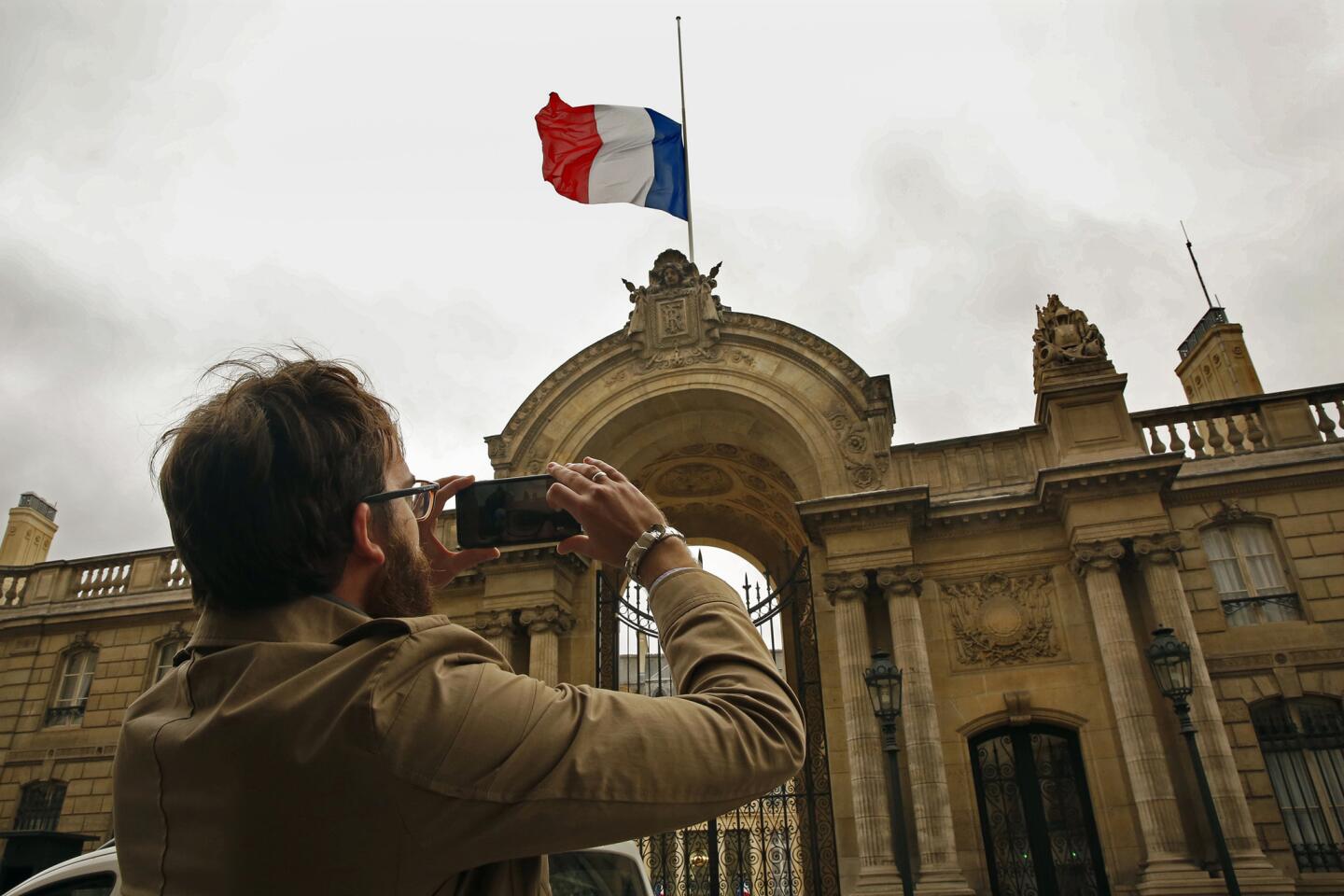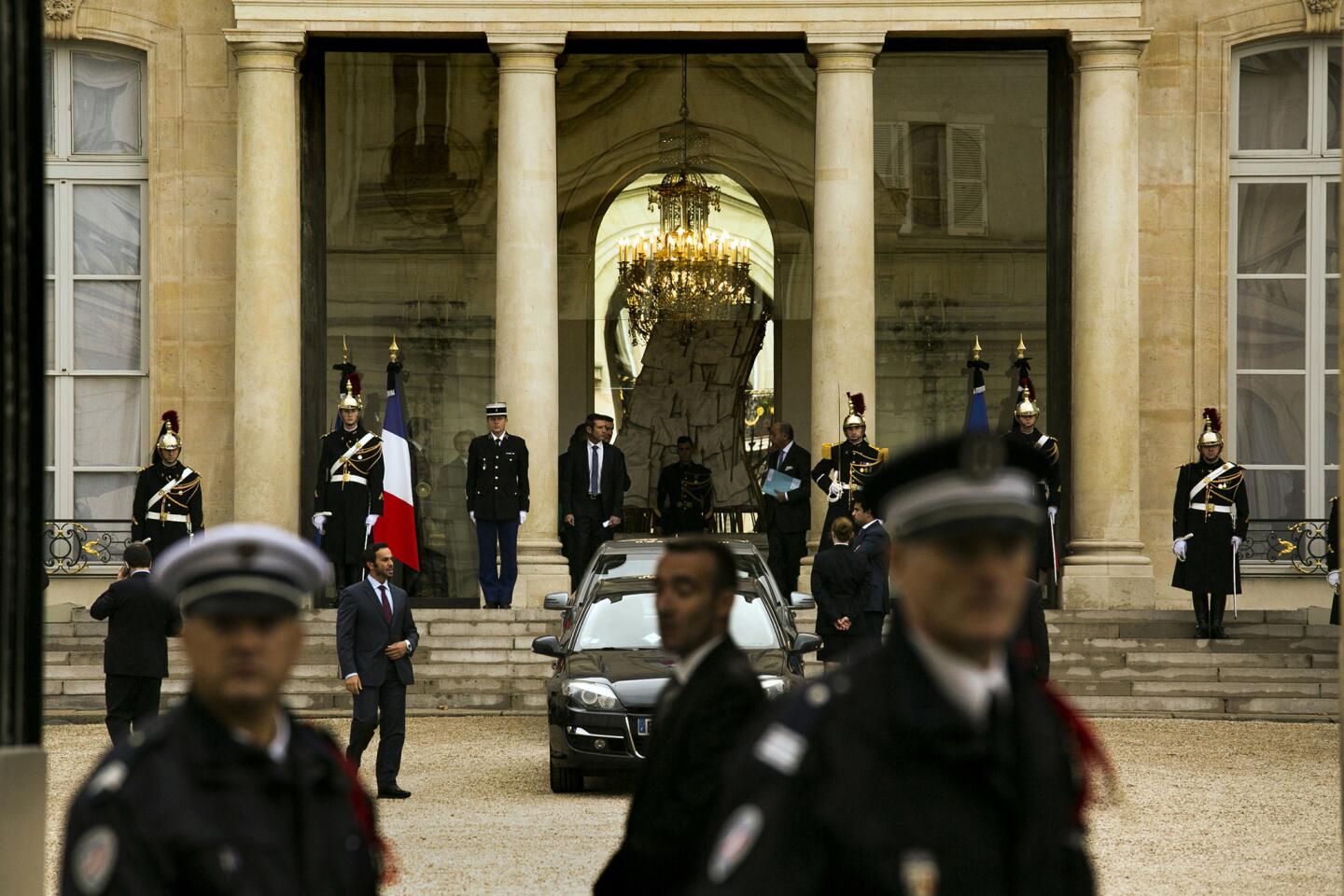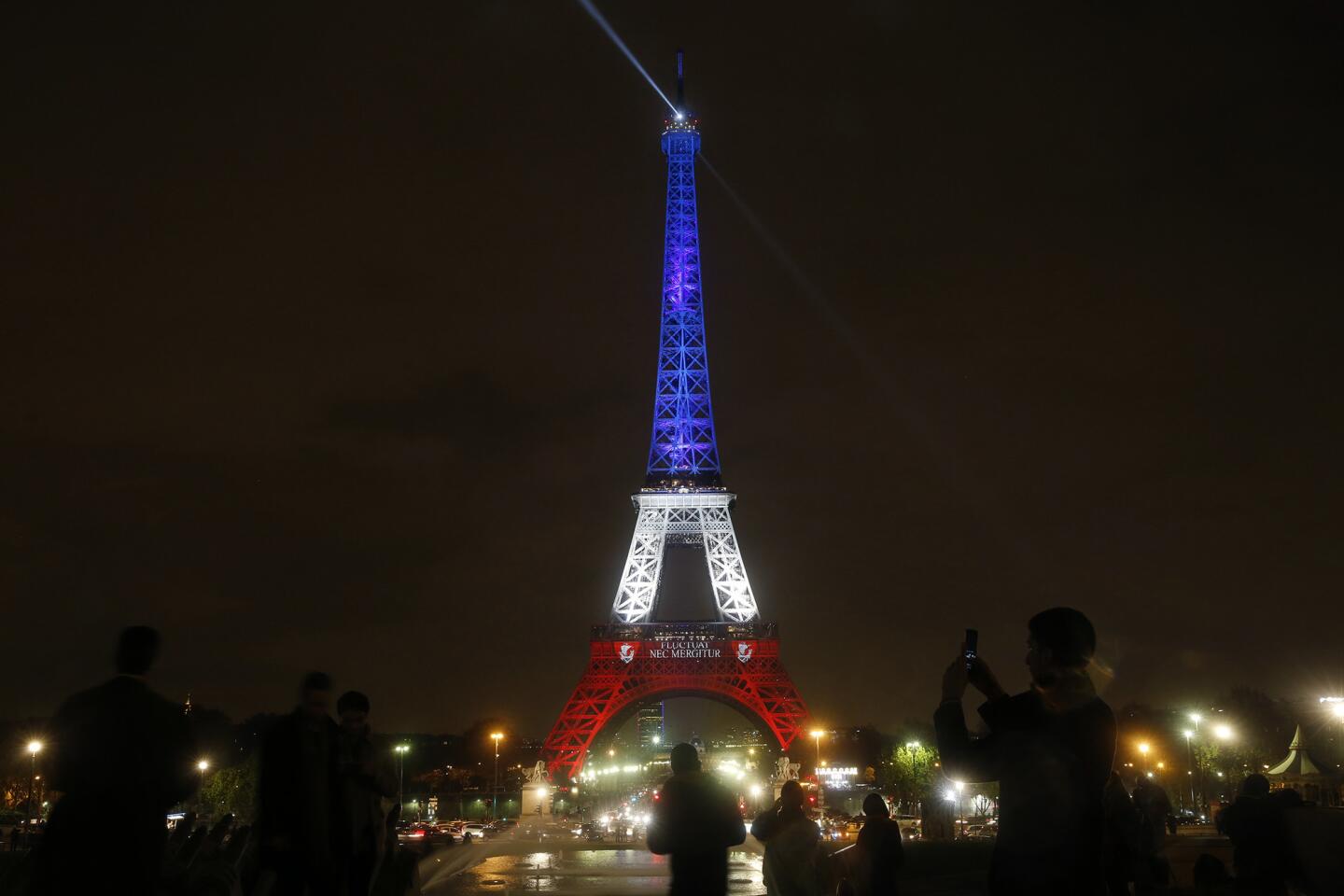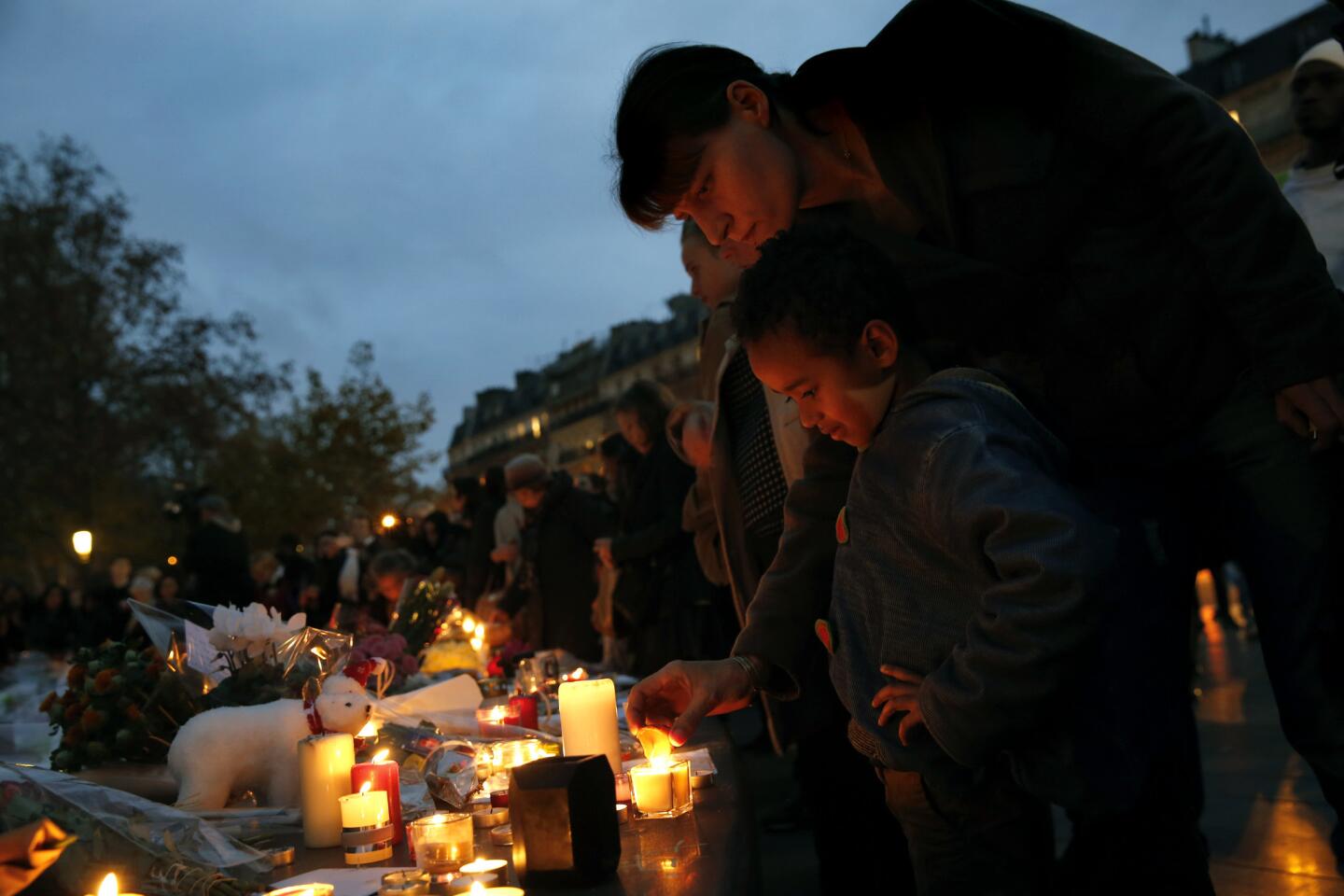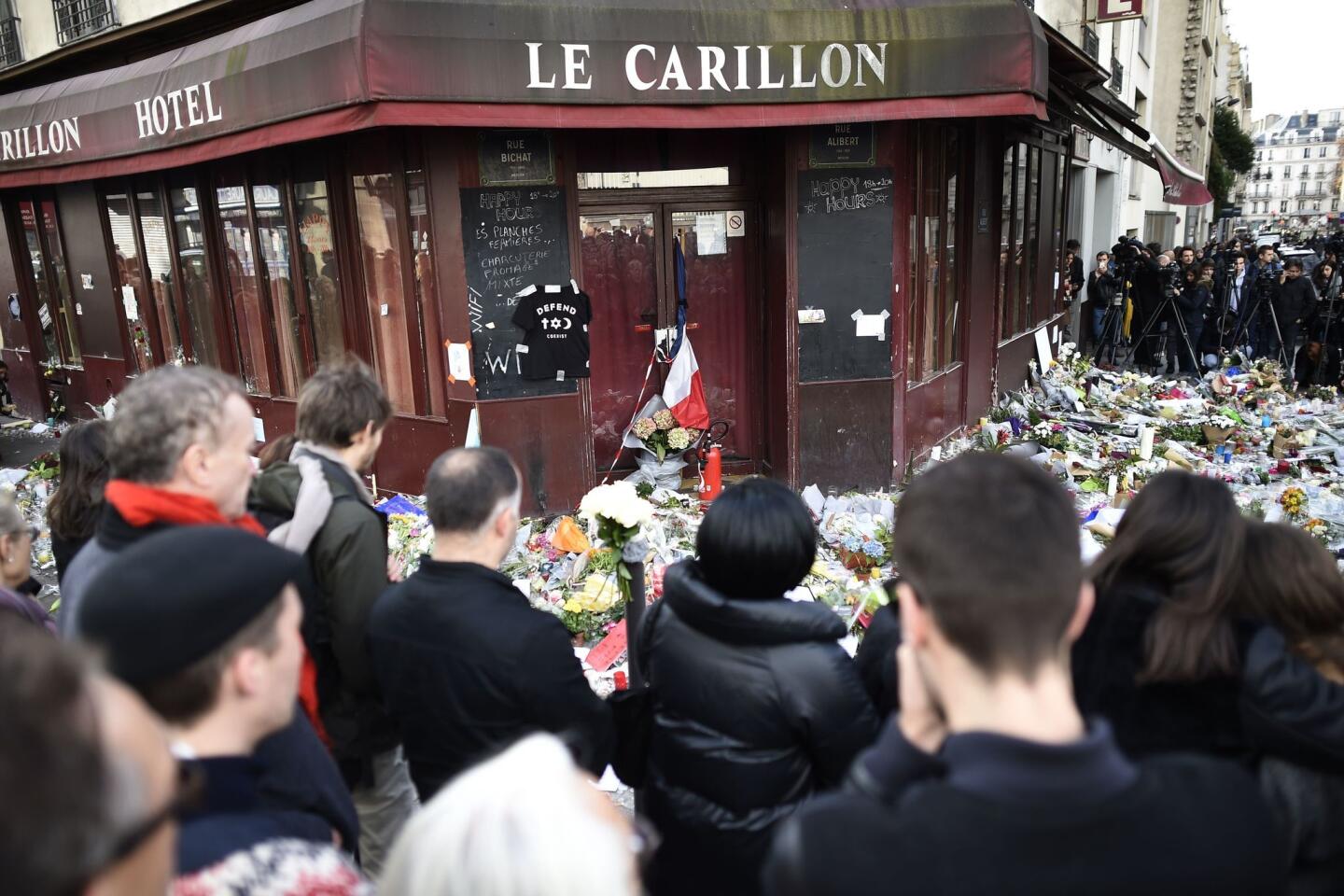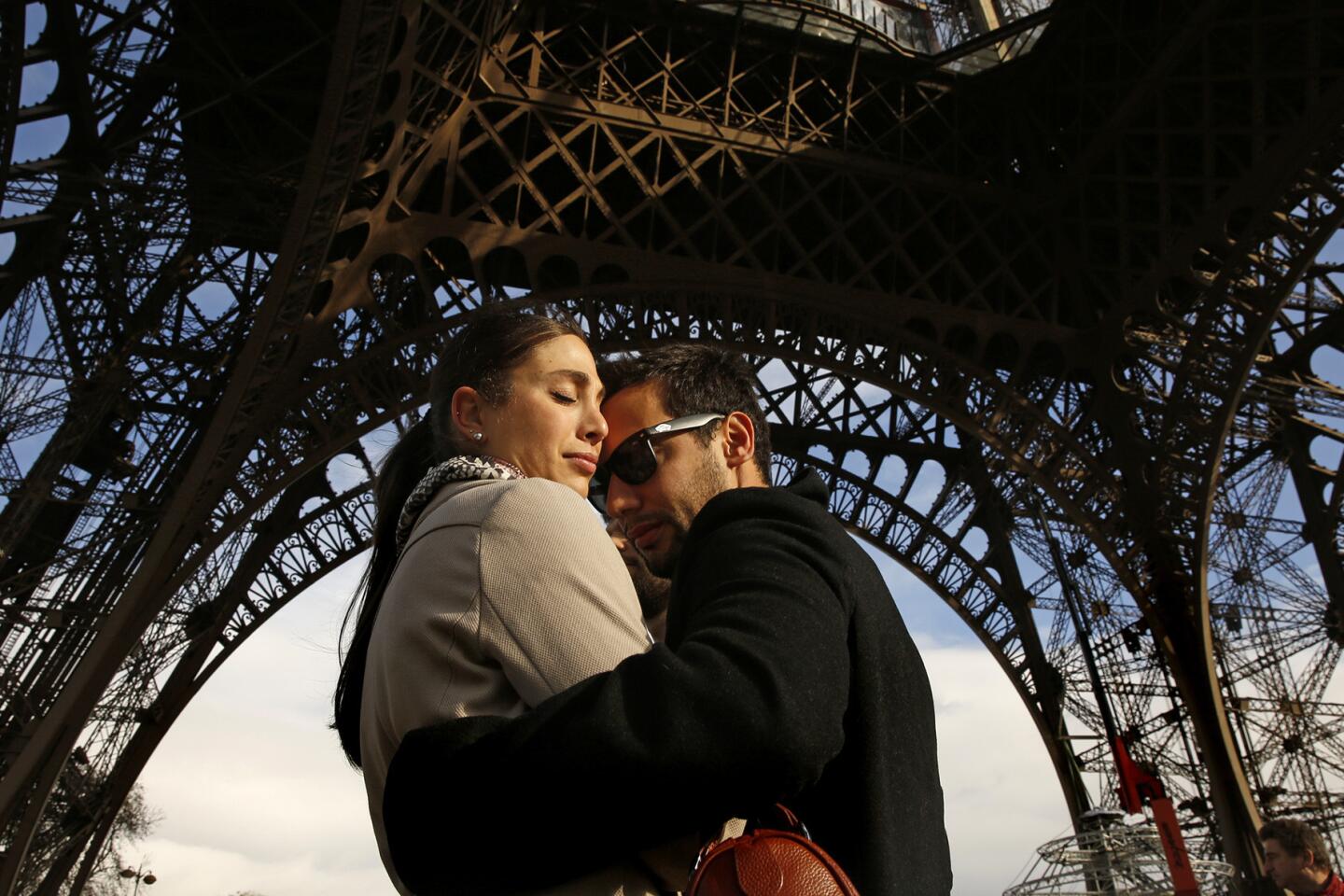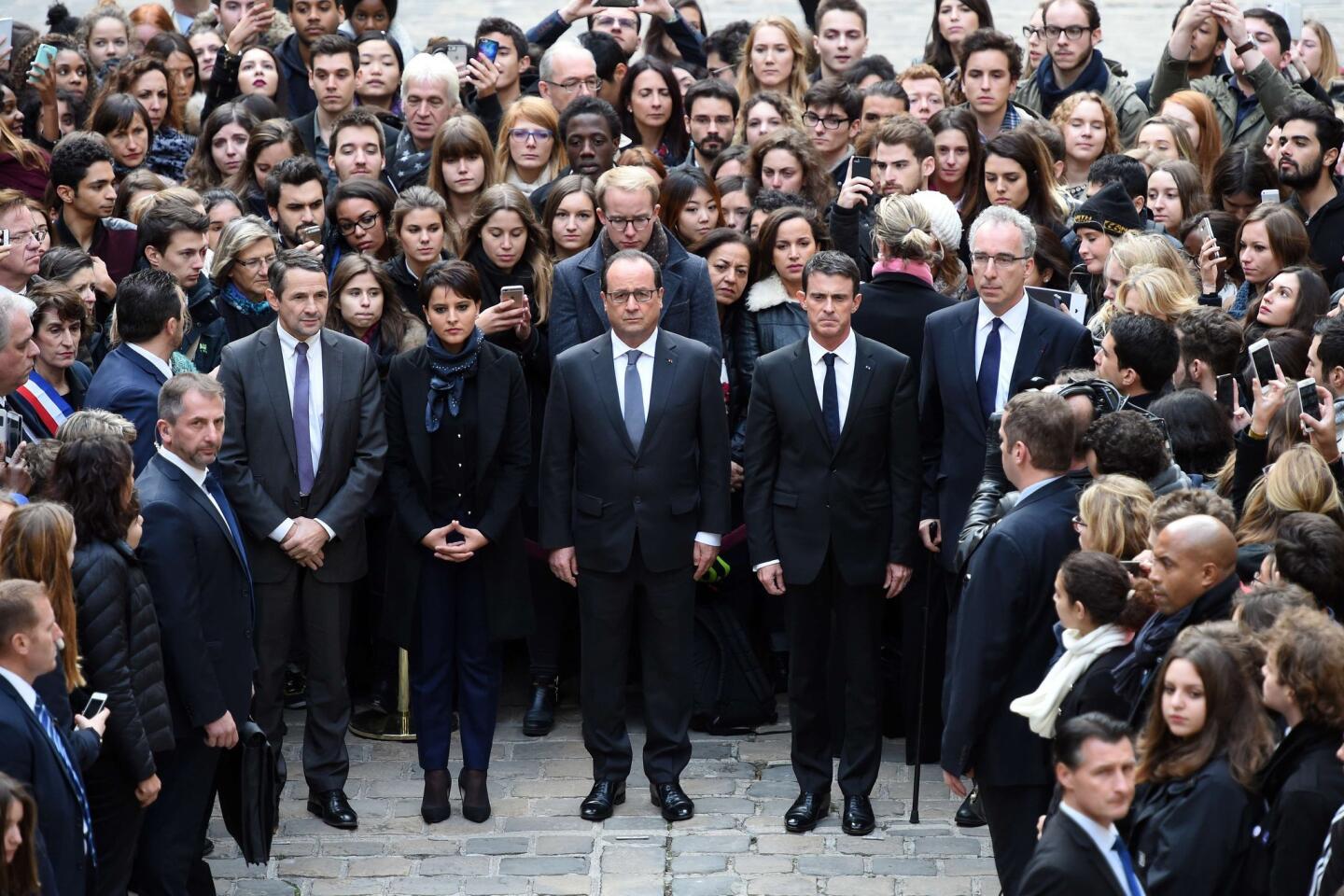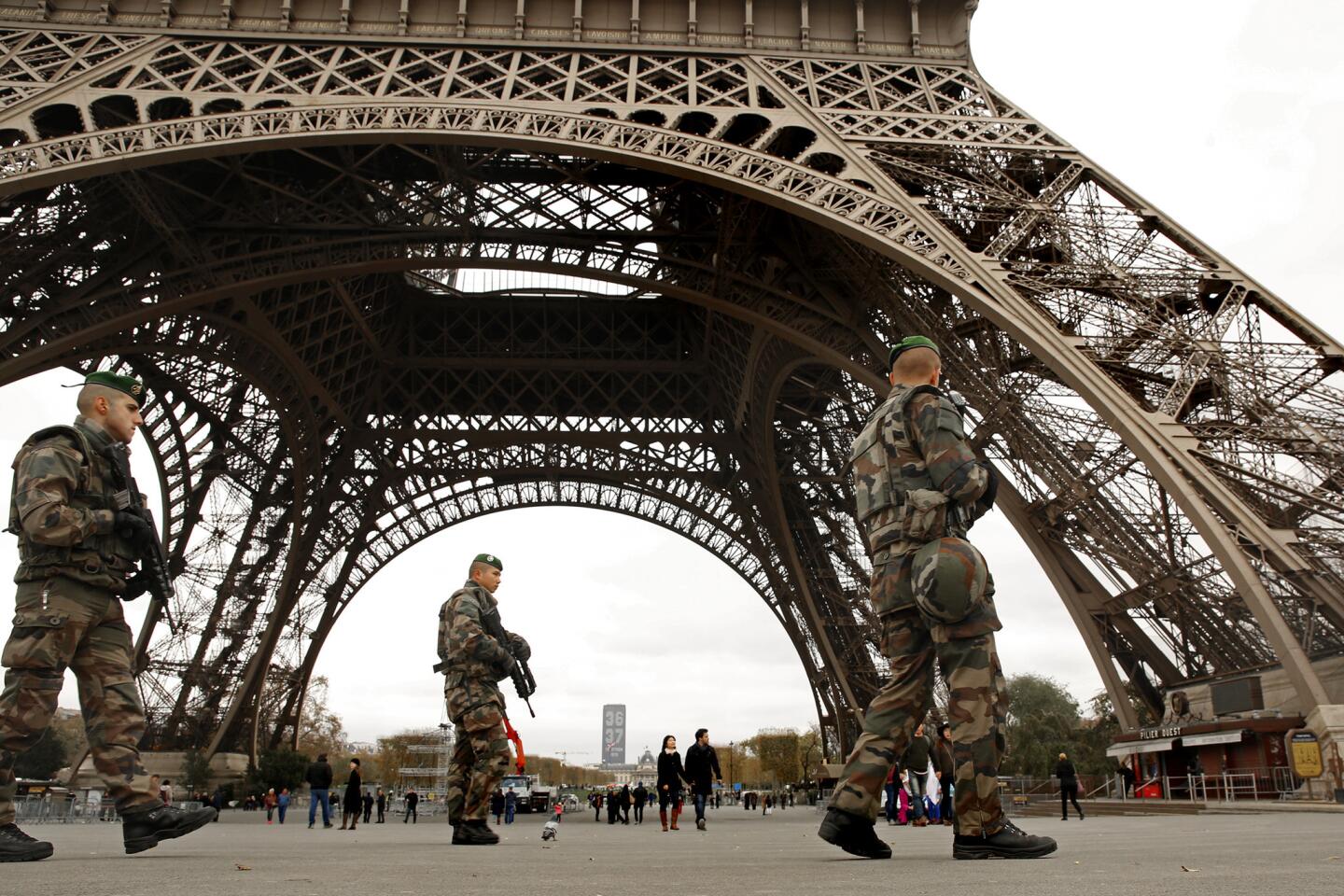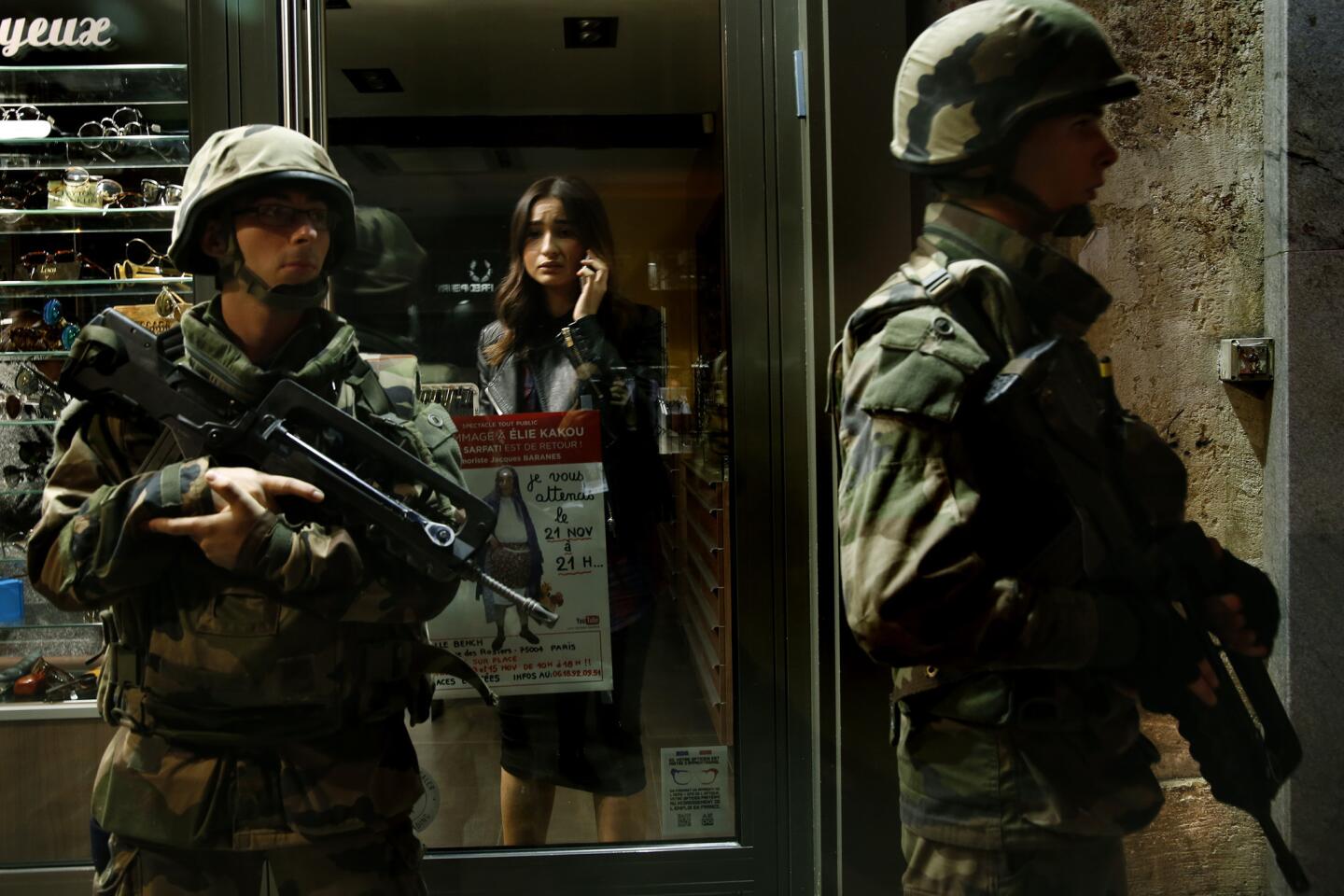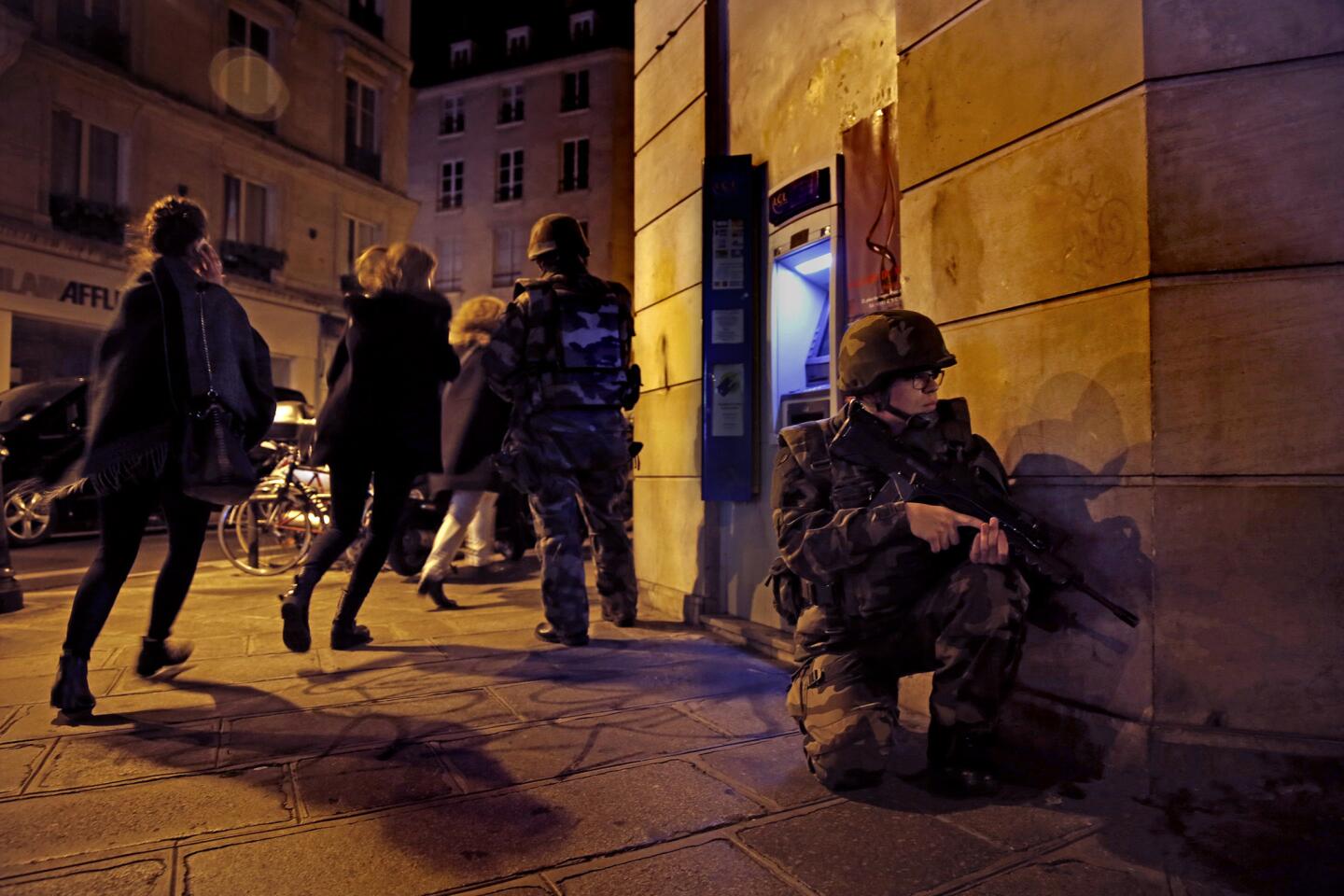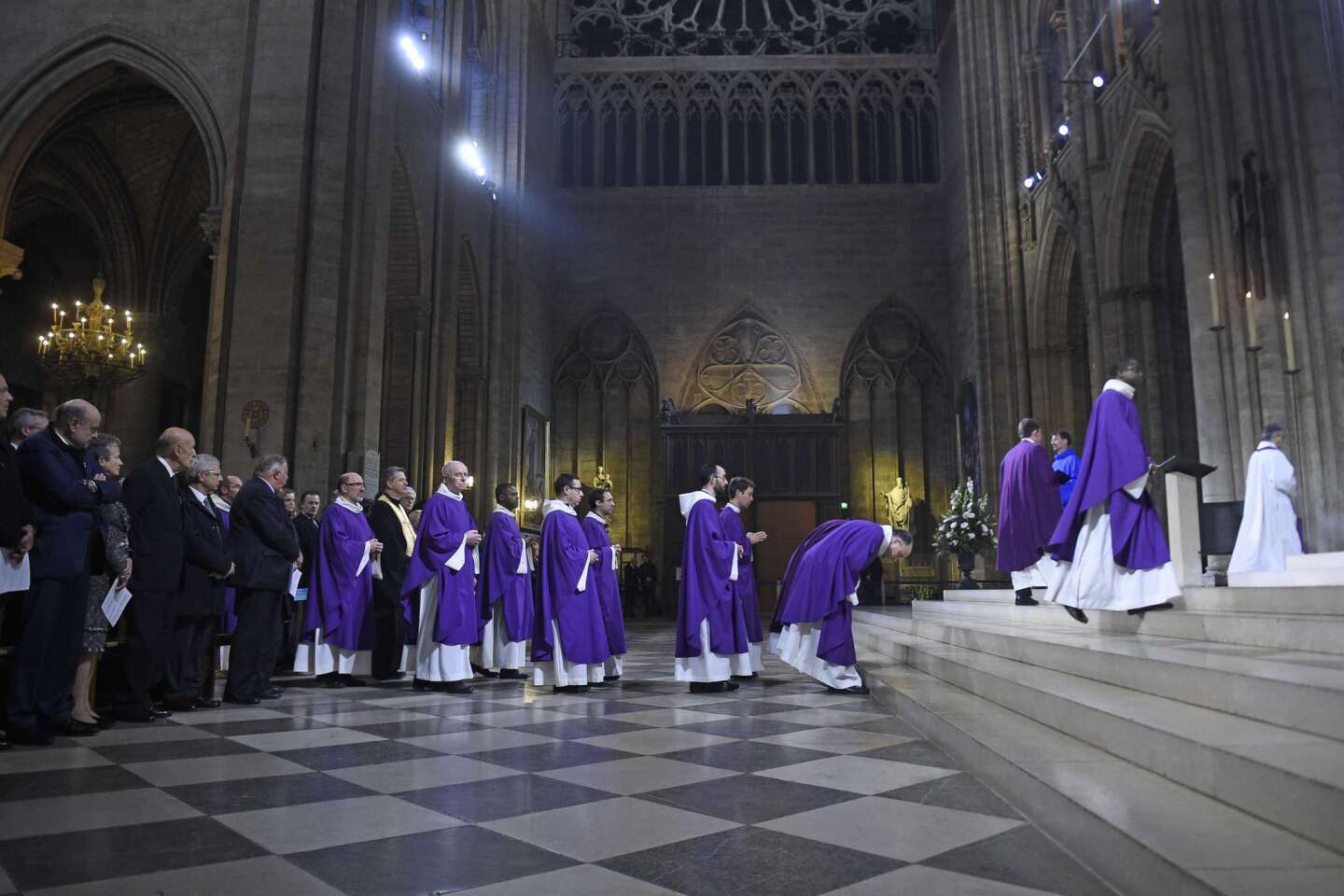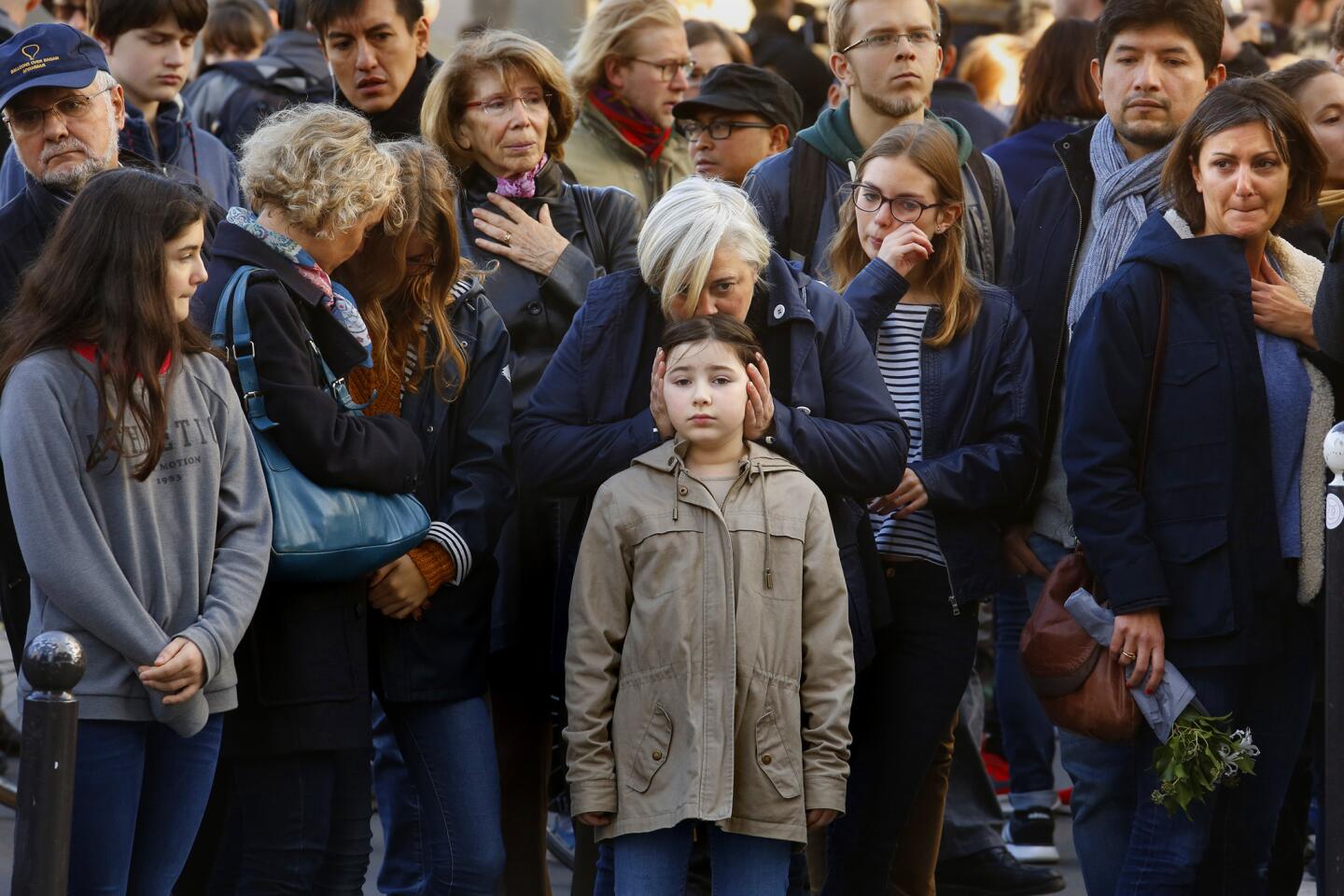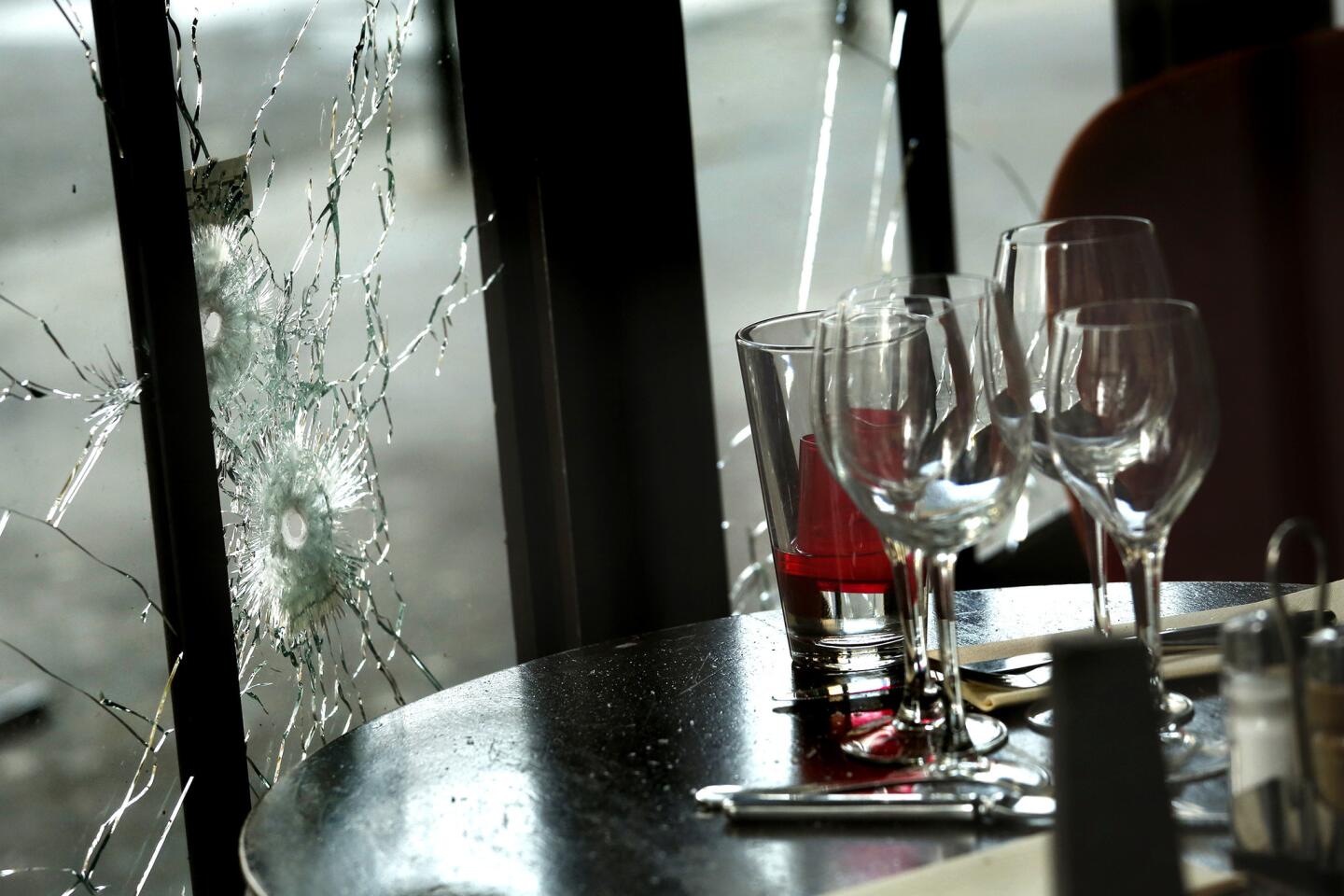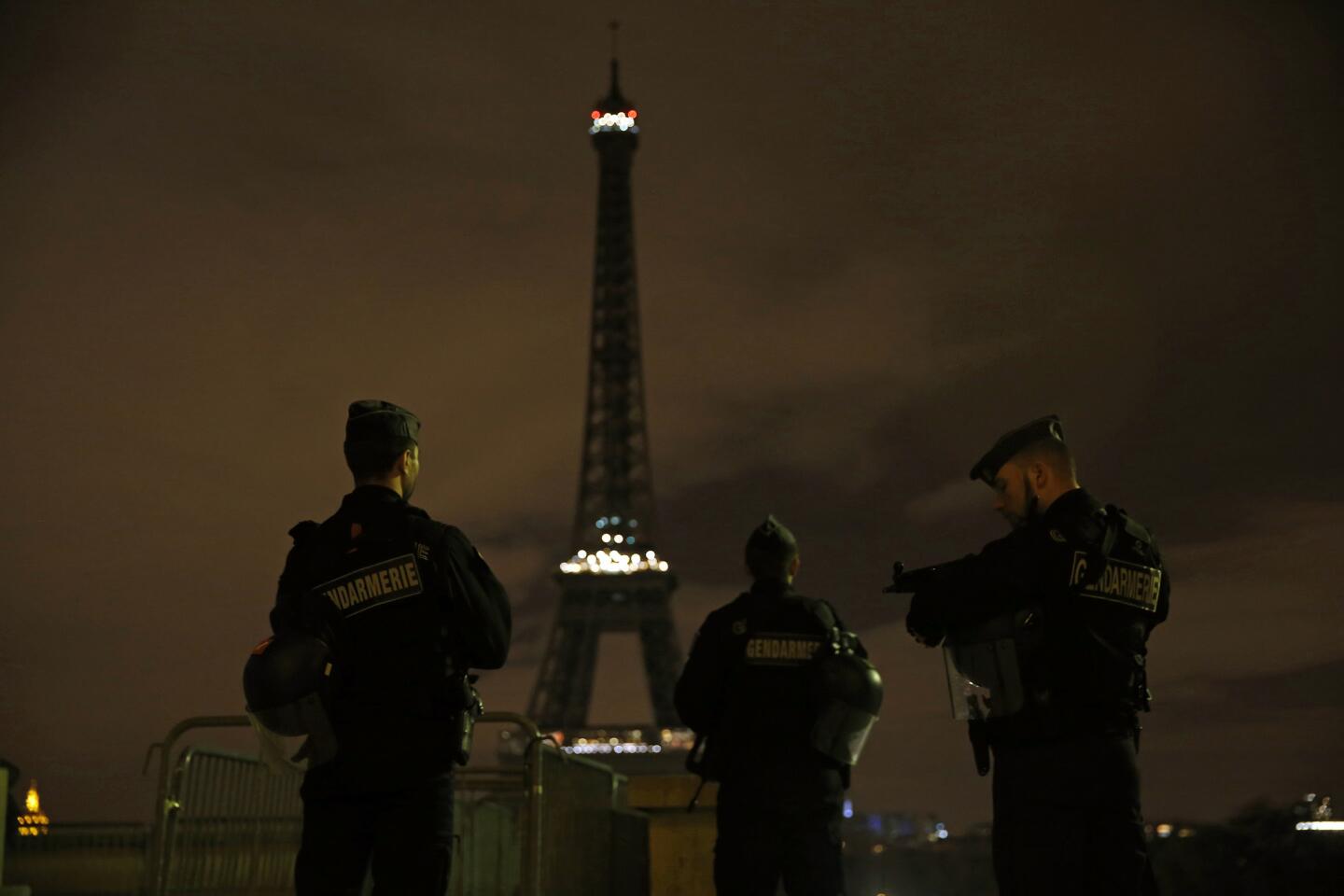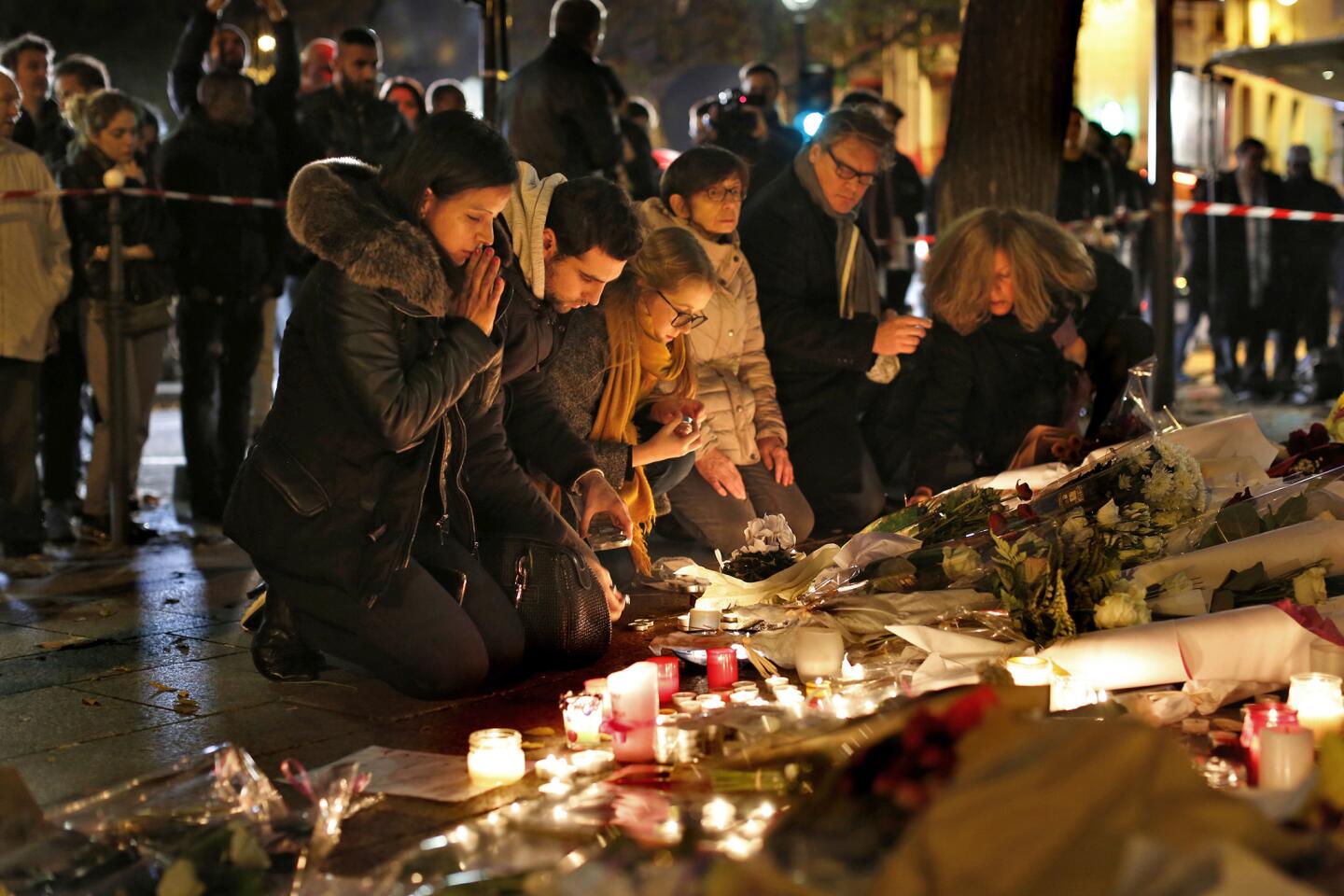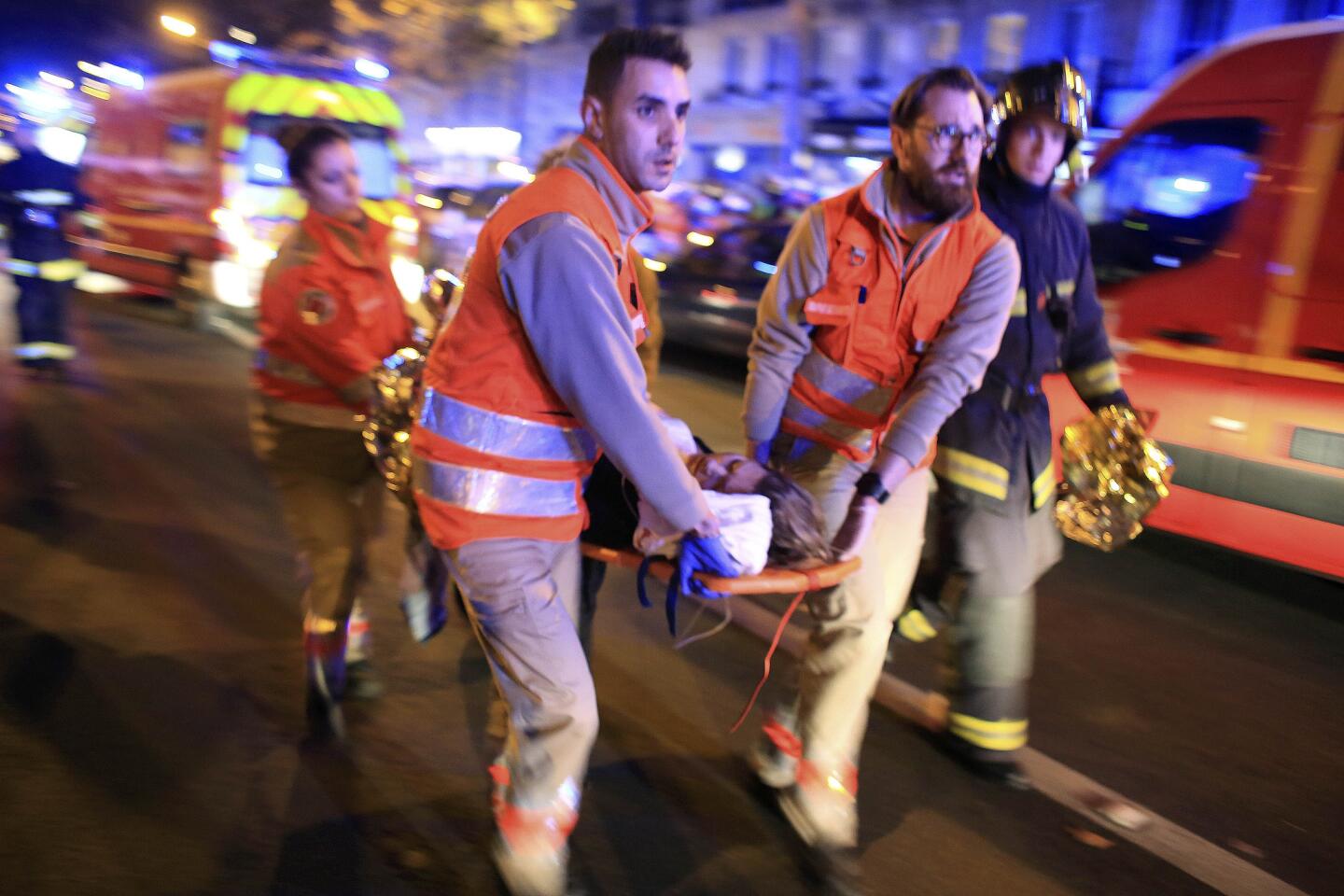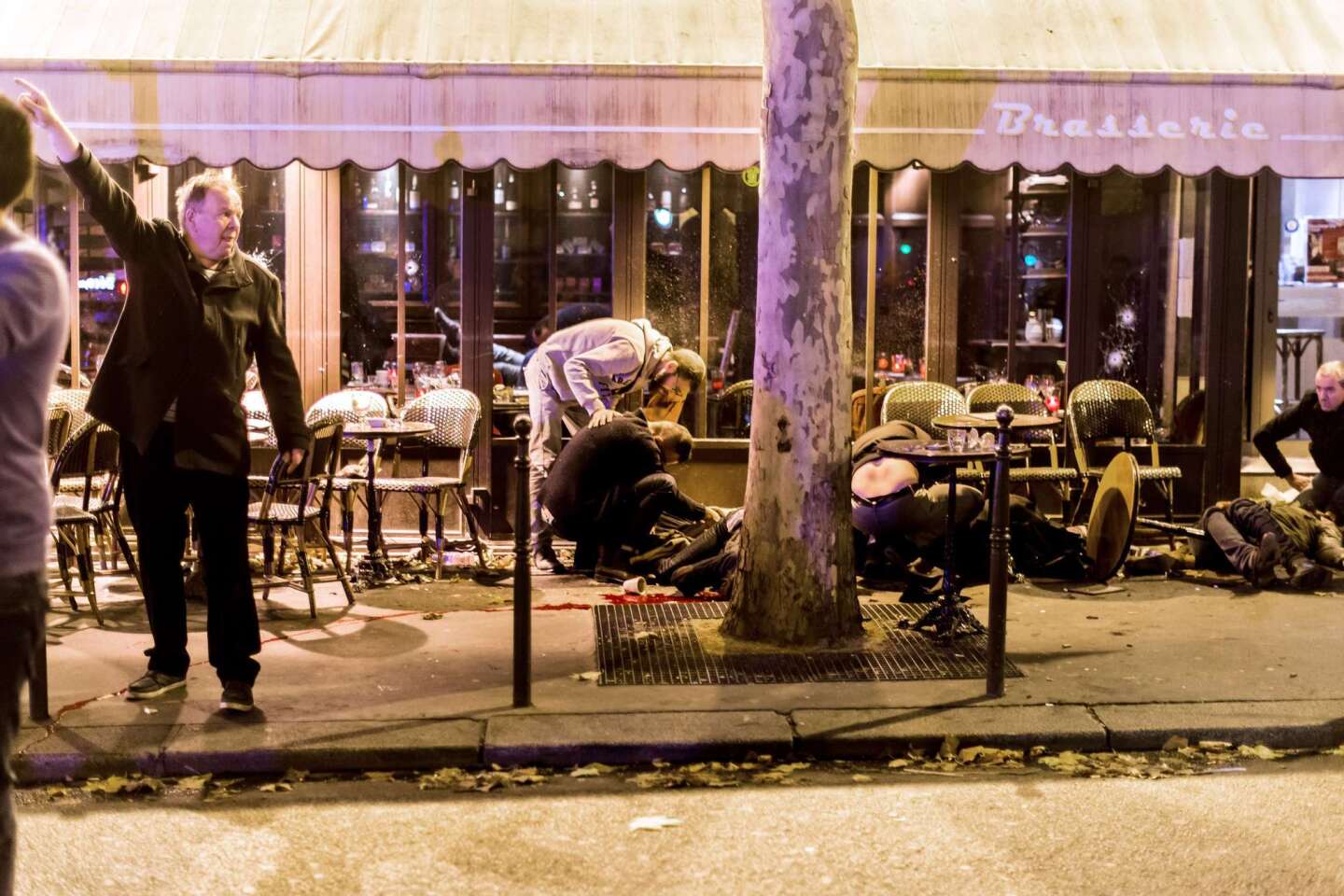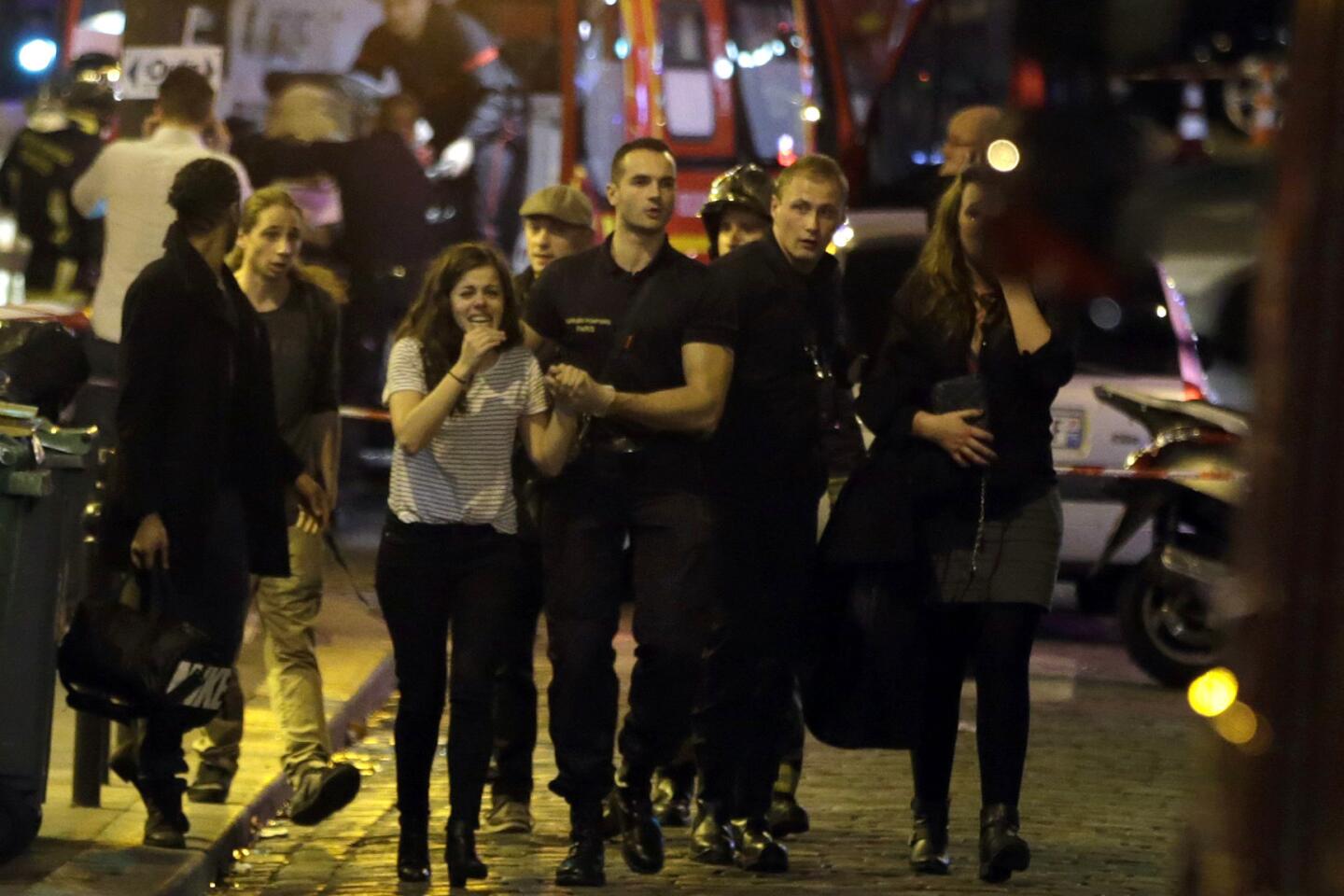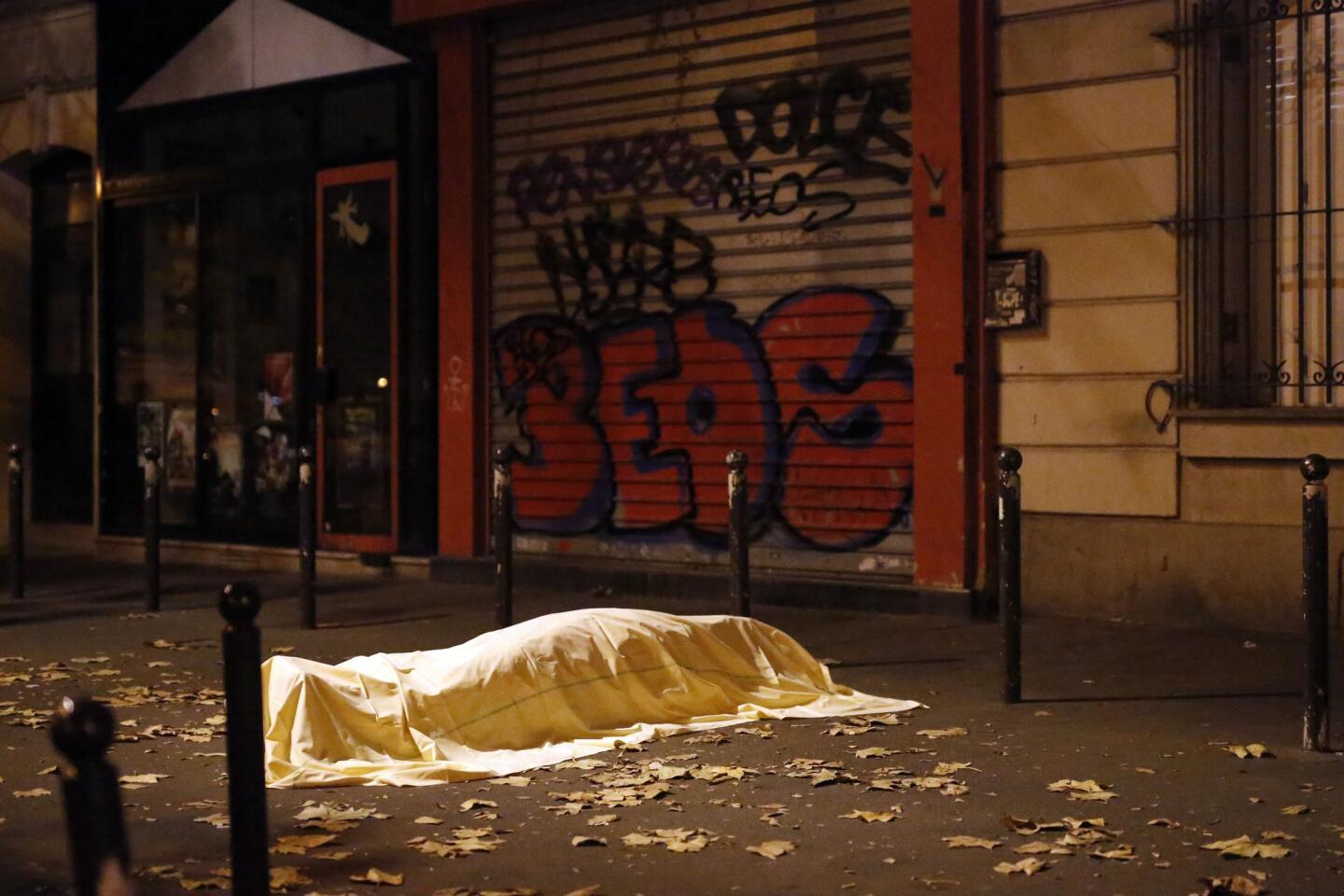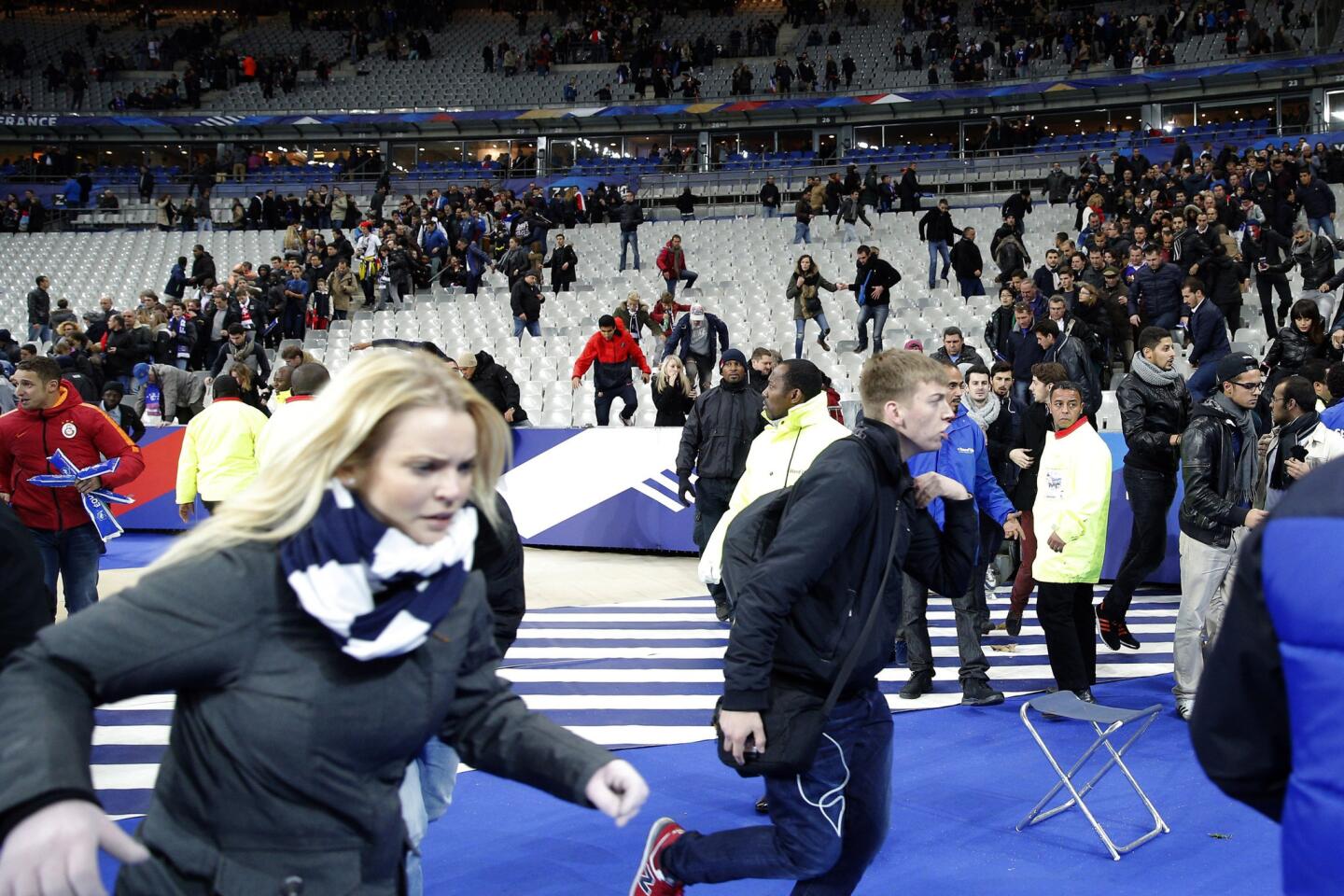Attacks struck a diverse, non-touristy Paris enclave
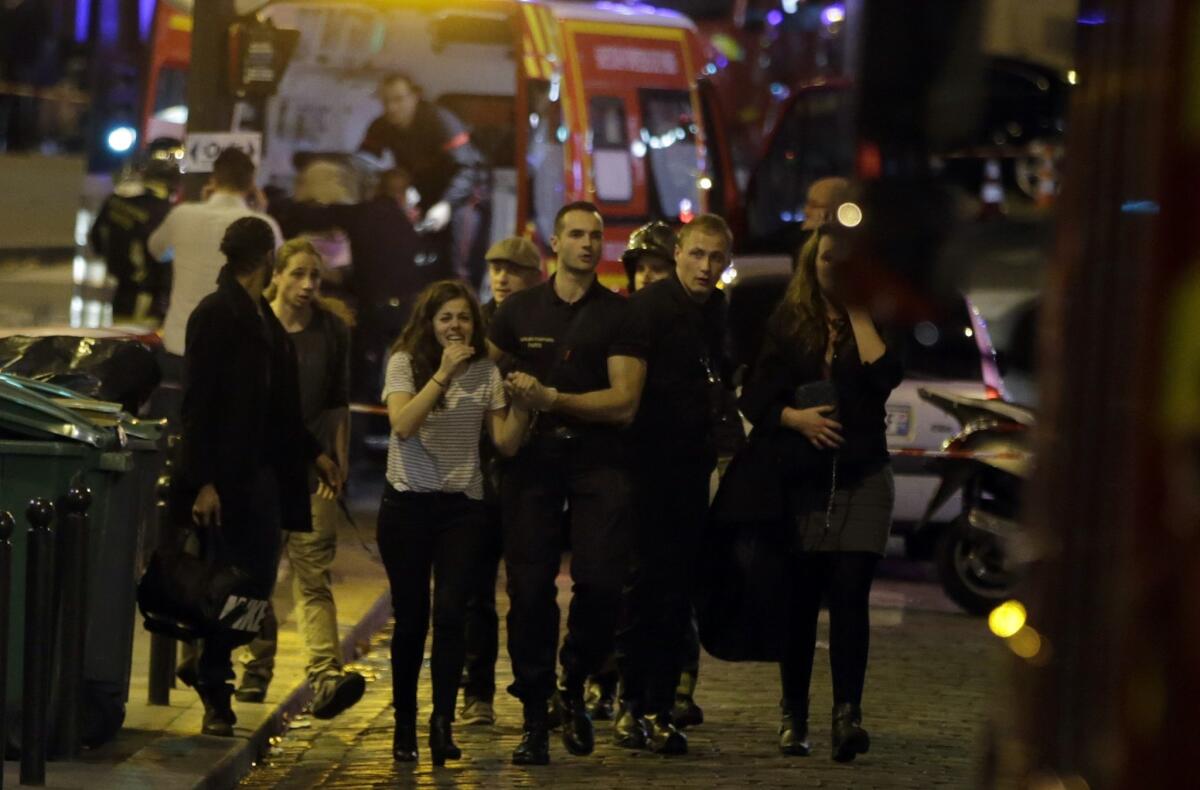
Rescuers evacuate people following an attack in the 10th arrondissement of the French capital Paris on Friday night.
- Share via
Reporting from Paris — The terrorist attacks that rocked Paris on Friday night occurred far from the sites that tourists are most familiar with.
Three of the four assaults struck at the heart of one of the city’s hippest neighborhoods, known for its grungy cafes, progressive inhabitants and vibrant mix of cultures.
It is far from the iconic Eiffel Tower or glitzy Avenue des Champs-Élysées that adorn postcards, yet it is a section of the city that Parisians are particularly proud of.
The area, encompassing the 10th and 11th arrondissements in eastern Paris, is one where residents sip coffee during the day and let loose in sweaty music clubs by night. Just north of the Place de la Bastille, it includes neighborhoods full of unmistakable diversity, with Turkish kebab and Vietnamese restaurants a few doors down from pizzerias or tattoo parlors.
NEWSLETTER: Get the day’s top headlines from Times Editor Davan Maharaj >>
It is a largely working-class neighborhood of multi-generational Parisians and newly arrived immigrants from Africa, Asia and the Middle East. A typical scene on a Friday night is marked by groups of friends, many visiting from other blue-collar neighborhoods, huddled in cafes around small round tables near glass windows, eating and drinking at the end of a long week.
“It’s a vibrant area,” said longtime resident Christina Benfeld. “And one of the most mixed by ethnic origin, social origin. There has been a bit of gentrification here, but not much. It’s really an interesting area to live.”
The significance of the terrorists choosing to wreak havoc in the heart of working-class Paris, instead of a more bourgeois or touristy neighborhood, has not been lost on residents.
Some said Saturday that they were sure the gunmen wanted to convey a specific message - that Paris was a target because of the city’s core values and inclusive way of life.
“It is this Paris that was hit,” said Mayor Anne Hidalgo, who paid a visit to the sites on Saturday afternoon and shared quiet words with those gathered. “Probably because this example of living together, which is so strong in our city, is unbearable for fanatical people.”
Businesses were mostly shuttered after President Francois Hollande declared three days of national mourning, and most people appeared to be heeding warnings and staying indoors.
Many parks and sidewalks were uncharacteristically quiet and people spoke in hushed voices as they thought about the 129 dead and 352 injured. The police presence was intense and occasional sirens sparked nervous jitters.
Islamic State on Saturday claimed credit for the coordinated attacks, calling Paris the “capital of prostitution and obscenity.”
“It’s like they struck at the young, strong force of Paris,” said Benfeld, 55. “The people who go to concerts, the people who go out. It’s really the urban side of the city, and it gives us the impression that the victims were everyone here in Paris.”
Looking across at a pizzeria where bullet holes had shattered the glass, Benfeld mulled over the mundane targets of the attacks.
“It really could be a pizzeria anywhere,” she said resignedly. “It’s the way we are living and the values we have, and we became a target because of that.”
After the attacks on the Charlie Hebdo satirical magazine headquarters in January, which left 17 dead, France united in defiance. Huge solidarity marches took place and people joined arms and vowed not to be beaten by extremism.
On Saturday, as the shock settled in again, the indiscriminate nature of the attack and its location created a more contemplative mood.
“They targeted people no matter what religion or who they were,” said Parisian Jean Marie Delprat, 55. “They attacked our values. They touched my city, and I don’t like that. They are savages.”
As night fell, the bouquets of flowers continued to grow. Candles were placed at each of the scenes and people bowed their heads as they gathered their thoughts or quietly recited prayers.
One young man of Algerian origin arrived outside Café Bonne Bière on Rue de la Fontaine au Roi, where more than 20 bullet holes had shattered sections of the windows and several innocents had been killed.
He sang the national anthem, “La Marseillaise,” and the crowd applauded as he finished.
“My parents came here from Algeria in 1962, and I was born here. They always say this country is magnificent and it is,” he explained. “They can’t divide us.”
Then he backed away and headed up a winding, dimly-lit street in search of a quiet place he could grab a drink and continue to process the events of the past 24 hours.
Boyle is a special correspondent.
MORE ON PARIS ATTACKS:
Paris terror attacks were plotted by a small extremist cell in Brussels, investigators suspect
24 hours of coverage: Coordinated attacks kill 129 people
A timeline of the Paris attacks
More to Read
Sign up for Essential California
The most important California stories and recommendations in your inbox every morning.
You may occasionally receive promotional content from the Los Angeles Times.
